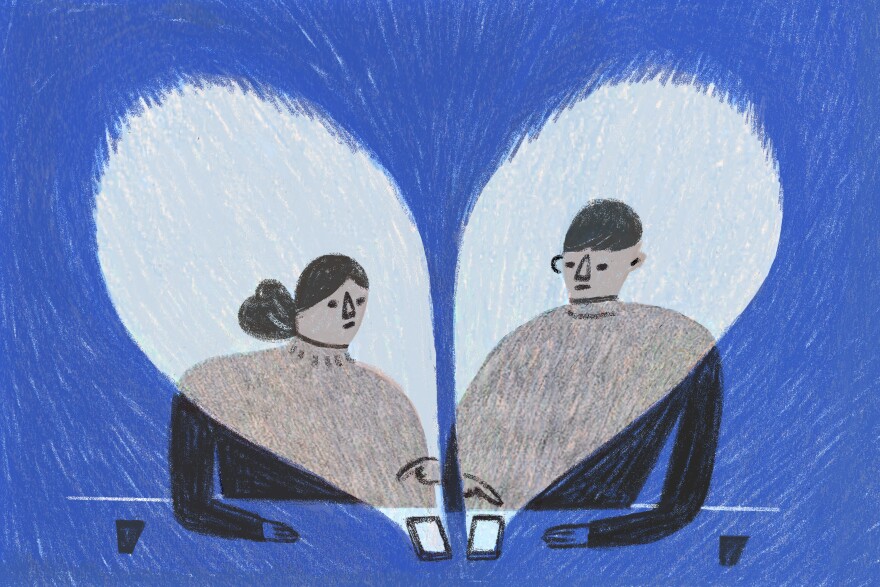The end of the year is often a time of reflection — a time to take stock of the past and to look ahead to the exciting possibilities of the future. But this year ... well, it feels a little different.
Maybe you're just trying to get through the day. Maybe you want to move on from 2021, but you feel stuck in a holding pattern. Wherever you're at, we wanted to share the Life Kit stories that got you through a roller coaster of a year.
When we looked back at our top 10 stories from 2021, we noticed a few things: That we just might need a break — the 9 to 5 grind isn't working anymore and our focus is waning. But we also noticed that, even if we're still socially distant, we're craving connections — how to find them, nurture them and learn from them.
However you're feeling with this year coming to a close, here's to the best bits of 2021 and to a brighter 2022.
10. How to shake the feeling that you're an impostor

There is no magic cure for getting rid of feeling like an impostor, but there are some tools to help manage the feeling when it starts to rear its ugly head.
9. How to wake up early, even if you're not a morning person

For some people, waking up early just feels natural. But if you're not naturally a morning person, how much room do you have to change your wake-up schedule? A few habits can help make waking up earlier less of a chore.
8. Too much focus is draining. Here's a better strategy

Getting (and staying) focused can be a challenge in the best of times. But with everything going on in the world, concentrating can feel down-right impossible. Here are six tips to help you find your flow.
7. Procrastination is more than putting things off. Here's how to kick the habit

At the beginning of every year, we promise ourselves that we'll slay this beast. We make lists, buy journals, try new apps, but no matter what, we often wind up falling into the same cycle of delay and avoidance — putting things off, day after day. Here's how to combat procrastination however small the task.
6. You're apologizing all wrong. Here's how to say sorry the right way

Most of us haven't been taught how to apologize, and our efforts tend to be deleterious: vague, intrusive, demanding, or full of caveats that can leave the recipient of an apology feeling even worse. Here are six ways to offer an apology that can help heal, rather than cause additional harm.
5. How to fall in love, according to Hinge's relationship scientist

Dating isn't easy but Logan Ury's book, How to Not Die Alone, presents a plan for every type of dater and walks readers through each step of that process. Here are three things you can do today to shift your love life for good.
4. How understanding jealousy could lead to a better relationship

Jealousy is a complex emotion and can lead to everything from internal strife to unnecessary arguments. But cultivated correctly, jealousy can also be a powerful tool for change.
3. The key to flirting? It's not about you

If you're looking for a few concrete tips to help you get better at flirting, look no further. Nothing corny or weirdly creepy — OK, one slightly corny thing.
2. The 40-hour workweek isn't working. Reducing it could help with productivity

The five-day workweek hasn't always existed. How did we get here, and where can we go? Life Kit spoke with author and researcher Will Stronge about what a shorter workweek offers workers and organizations.
1. Burnout isn't just exhaustion. Here's how to deal with it

Burnout has serious consequences for your mental health, so it's important to spot it and address it. We asked some of the top experts on the topic for tips to recognize and address burnout in yourself and at your workplace.
We'd love to hear from you. Leave us a voicemail at 202-216-9823, or email us at LifeKit@npr.org.
For more Life Kit, subscribe to our newsletter.
Copyright 2022 NPR. To see more, visit https://www.npr.org.




